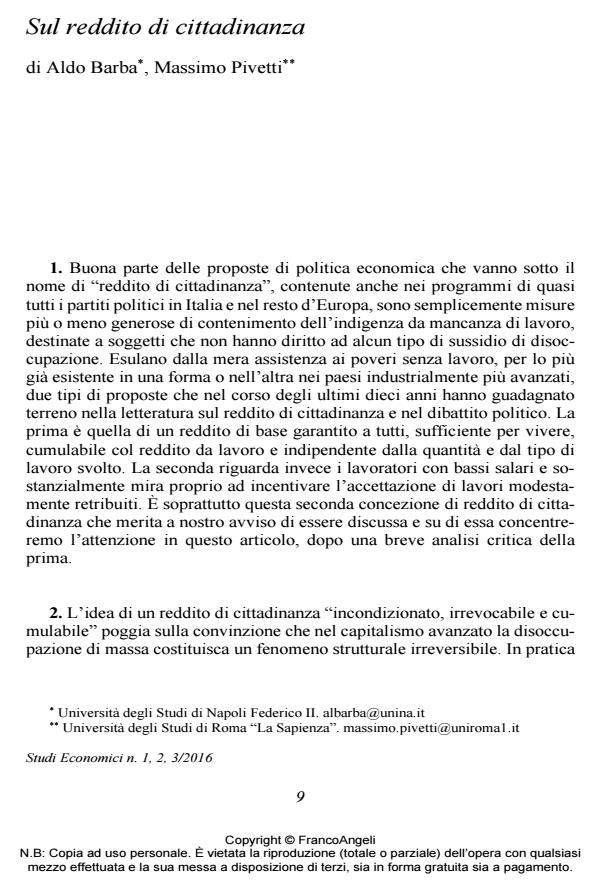Sul reddito di cittadinanza
Journal title STUDI ECONOMICI
Author/s Aldo Barba, Massimo Pivetti
Publishing Year 2017 Issue 2016/118-119-120
Language Italian Pages 14 P. 9-22 File size 186 KB
DOI 10.3280/STE2016-118002
DOI is like a bar code for intellectual property: to have more infomation
click here
Below, you can see the article first page
If you want to buy this article in PDF format, you can do it, following the instructions to buy download credits

FrancoAngeli is member of Publishers International Linking Association, Inc (PILA), a not-for-profit association which run the CrossRef service enabling links to and from online scholarly content.
We consider two concepts and proposals of basic income which have gained ground over the last few years both in the literature and in the policy debate. According to the one, a living income should be granted to all citizens additionally to any kind of earned income and irrispective of the quantity and quality of work actually performed by them. The other concerns instead low-paid wage earners and aims precisely at encouraging a widespread acceptance of modestly paid jobs. Our attention is focused critically on the latter concept of basic income, while the former is shortly discussed and dismissed as fanciful.
Keywords: Basic income, unemployment, distribution, normal wage, minimum wage, employment policy
Jel codes: D30, E24, H24, J31
Aldo Barba, Massimo Pivetti, Sul reddito di cittadinanza in "STUDI ECONOMICI " 118-119-120/2016, pp 9-22, DOI: 10.3280/STE2016-118002